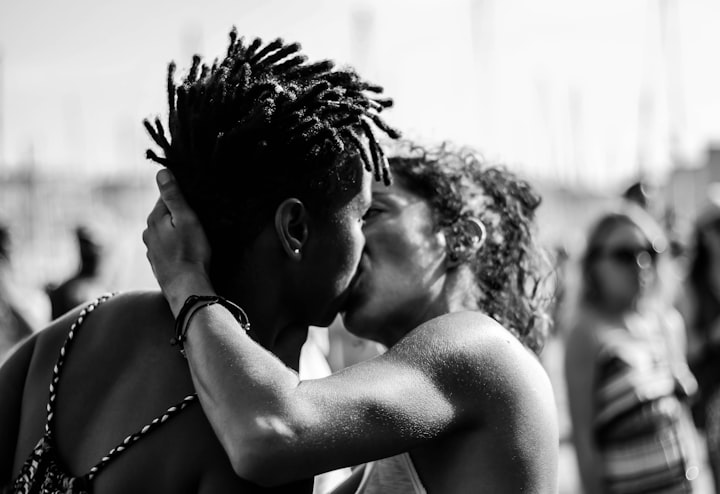New Law in Uganda Makes Homosexuality Punishable by Death
Uganda has plunged into a human rights crisis as President Yoweri Museveni signs the controversial Anti-Homosexuality Act 2023. The Uganda LGBT community is now in peril, as the new legislation makes homosexuality punishable by death.

The Uganda LGBT community, along with international human rights organizations and allies, are in a state of despair following the enactment of the Anti-Homosexuality Act 2023 in the East African nation. President Yoweri Museveni signed the draconian legislation on Monday, making homosexuality punishable by life imprisonment and "aggravated homosexuality" punishable by death.
Activists and the global community have named the law a "tragic violation" of human rights, with the legislation extending to impose severe penalties on individuals accused of "promoting" homosexuality in Uganda. Such individuals could face up to 20 years in prison, while those identified as "serial offenders" and those accused of transmitting HIV/AIDS through gay sex could face capital punishment.
The Uganda LGBT community, as well as the wider LGBTQIA and LGBTIQ spectrum, are severely endangered by these developments. They are facing not only a grim infringement on their rights but also a potential death sentence. Same-sex relations were already illegal in Uganda, much like in over 30 African countries, including Kenya. But the new law's severity has stunned even the Kenya gay and Kenya lesbian communities.
Critics note the worrying increase in anti-gay sentiment in Uganda, partly fueled by American evangelical groups who have invested over $20 million to fight LGBTQ rights in the country from 2007 to 2020. American pastor Scott Lively, for instance, has been instrumental in spreading homophobic beliefs, describing homosexuality as a Western-propagated "disease".
Despite the condemnation from global leaders, including US President Joe Biden and Senator Ted Cruz, and institutions such as the UN Human Rights Office, Museveni continues to defy international pressure. The Uganda LGBT community, alongside local human rights organizations, is challenging the law in court, fighting to protect the rights and lives of LGBTQ individuals in Uganda.

However, the implications of this legislation extend beyond Uganda's borders. The drastic move might embolden lawmakers in neighboring countries, such as Kenya, who are eyeing similar measures. The Uganda LGBT community's struggle might soon become a shared burden for the LGBTQ community in Kenya and across the continent.
The international reaction has been swift and damning, with threats of sanctions and restrictions against Uganda. President Biden stated that the White House was "considering additional steps, including the application of sanctions and restriction of entry into the United States against anyone involved in serious human rights abuses or corruption."
Dominic Arnall, chief executive of Open For Business, a coalition of companies including Google and Microsoft, voiced their disappointment, arguing the law counters Uganda's economic interests. The Global Fund to Fight AIDS, Tuberculosis, and Malaria, along with PEPFAR and UNAIDS, also declared that the law puts Uganda's fight against HIV/AIDS "in grave jeopardy."
While Uganda continues to receive billions of dollars in foreign aid annually, the new similar bill nine years ago.
Local Ugandan rights activist Clare Byarugaba pointedly stated, "The Ugandan president has today legalized state-sponsored homophobia and transphobia." This chilling sentiment reflects the dire situation for the Uganda LGBTQIA community, especially for Uganda gay, lesbian, and transgender individuals.
Historically, Uganda's stringent anti-LGBTQ laws have roots in the country's colonial past, with the inclusion of anti-sodomy sections in the British penal code. A 2014 anti-LGBTQ law was struck down by a Ugandan court on procedural grounds, but this has not deterred the continued push for even stricter laws.
The current law, already dubbed the "Kill the Gays" bill, was originally proposed following an anti-gay conference in Kampala, featuring the American anti-gay evangelical Scott Lively. This historical context demonstrates the extent of Western influence on Uganda's legislative stance against the LGBT community in Uganda.
The new law, however, does contain slight modifications from previous iterations. It states that simply identifying as LGBTQ is not a crime and mandates reporting of homosexual activity only when a child is involved. However, the Uganda LGBT community dismisses these changes as superficial, with law enforcement regularly exceeding its legal authorities to harass them.
Unfortunately, this amended legislation has had immediate repercussions, triggering a wave of arrests, evictions, and mob attacks against the LGBTQ community in Uganda. The legislation has even drawn comparisons to apartheid, underscoring the severity of its discriminatory nature.
South African filmmaker Lerato commented on the situation, saying, "To reduce any kind of human being, irrespective of their sexuality, to a death sentence based on who they identify as and how they choose to live their lives is something that we should all feel very ashamed about as a continent. We can liken this to apartheid if not worse."
This drastic turn of events underscores the urgency to address the human rights abuses against the Uganda LGBT community, and indeed, the wider LGBTIQ, LGBTQ, and LGBTQIA communities across Africa. Their battle for freedom, acceptance, and life itself is a stark reminder of the continuing struggle for equality and human dignity worldwide. The world must stand in solidarity with Uganda's LGBT community and relentlessly fight against such blatant violations of basic human rights.

The Uganda LGBT community, echoing the concerns of LGBTIQ individuals around the world, fear the potential domino effect of this law. Countries across Africa, such as Kenya, might perceive Uganda's legislation as a precedent, leading to further restrictions and harsh penalties against homosexuality. The Kenya gay and lesbian communities are already watching these developments with concern.
Yet, even amidst such adversity, the Uganda LGBT community continues to resist. The Human Rights Awareness and Promotion Forum, along with ten other individuals, filed a complaint against the law at the constitutional court. Busingye Kabumba, one of the petitioners, emphasizes the group's commitment to fighting this law.
Indeed, Uganda's LGBTQIA community and allies are demonstrating unprecedented resilience in the face of oppressive state machinery. Activists are engaging in strategic litigation, advocacy, and awareness campaigns, challenging both the laws and prevailing social attitudes. Their efforts are part of a broader struggle to protect and promote the rights of LGBTIQ individuals in Uganda and across the continent.
Meanwhile, internationally, various human rights bodies, advocacy groups, and governments are intensifying pressure on Uganda. Many are considering severe sanctions and restrictions, including potential economic implications. In the midst of a global outcry against the law, it remains to be seen how Uganda's government will respond.
This escalating crisis in Uganda reflects the broader global context, wherein homosexuality is still criminalized in over 70 countries. The struggle of the Uganda LGBT community serves as a stark reminder of the urgent need for international solidarity, advocacy, and action to defend the rights of LGBTIQ and LGBTQIA individuals worldwide.
The Anti-Homosexuality Act 2023 may be a formidable hurdle, but the courage and resilience of the Uganda LGBT community are even stronger. The battle for their basic human rights continues, echoing their plea for equality and justice around the world.
Ultimately, the enactment of the Anti-Homosexuality Act 2023 in Uganda serves as a grim warning. The precarious position of the Uganda LGBT community is a stark testament to the continuous struggle for human rights. It also underscores the urgent need for global action to protect and defend the rights of all individuals, regardless of their sexual orientation or gender identity.
The fight is not merely for the Uganda gay, lesbian, transgender, and wider LGBTQIA community, but for the fundamental principle that everyone deserves to live freely and safely, without fear of persecution. Only then can we truly champion the cause of equality, diversity, and inclusivity.
About the Creator
Nathan Chen
I'm Nathan Chen, a queer Asian writer advocating for LGBTQ+ issues, Asian representation, millennial lifestyle, work life & mental health. Let's explore life's complexities together!






Comments
Nathan Chen is not accepting comments at the moment
Want to show your support? Send them a one-off tip.